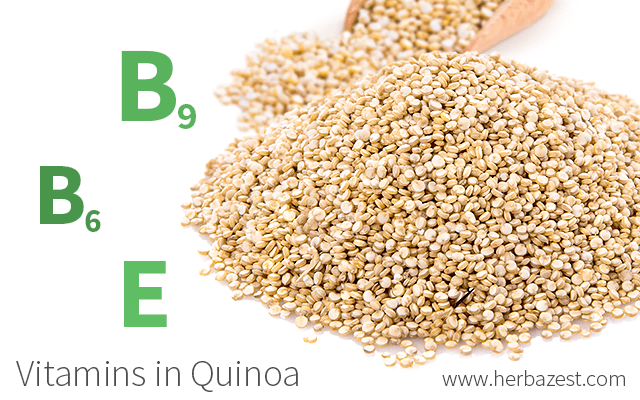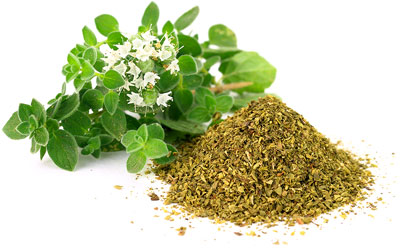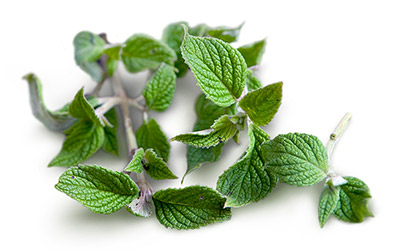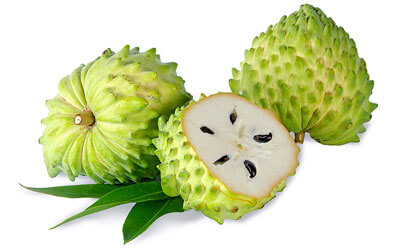Quinoa is best known for its high quality protein content; however, this Andean seed is also an excellent source of some essential vitamins and minerals. With that in mind, it is important to understand how the different preparations of quinoa affect its vitamin content, as well as how consuming quinoa will supplement your daily value of its most important vitamins.
Quinoa's Vitamins
Quinoa is a rich source of several essential vitamins. The following are some of the most prominent quinoa vitamins:
Vitamin B9. Also known as folate, this water-soluble B vitamin helps the body convert carbohydrates into glucose to produce energy.
Vitamin B6. This vitamin plays an important role in brain development, optimal immunity, and nervous system health.
Vitamin E. This vitamin is also fat-soluble and is an important antioxidant that helps prevent cellular damage and may also defend against certain health conditions, such as heart disease.
How to Make the Most Out of Quinoa's Vitamins
Most vitamins get degraded as a result of prolonged storage as well as exposure to heat or light. To take advantage of quinoa's vitamin content, the seeds can be first soaked and sprouted, then used in salads and smoothies. Soaking will not only tenderize the seeds, but will also remove saponins, which give quinoa its bitter flavor.
Quinoa's Vitamins and Daily Requirements
Eating quinoa will help supplement your body with part of the daily requirements of the vitamins it contains as a part of a healthy, balanced diet.
One cup (185 grams) of uncooked quinoa contains 303 micrograms of vitamin B9, thus contributing with about 76% of the recommended daily amount of 400 micrograms for adults.1 It is common to have low levels of folate, and people suffering from alcoholism, inflammatory bowel disease, and celiac disease are especially susceptible to folate deficiency, which can result in a number of issues, including gingivitis, loss of appetite, diarrhea, and mental sluggishness.
A cup of uncooked quinoa also contains 0.828 miligrams of vitamin B6, which is about 64% of the recommended daily amount for the vitamin (1.3 miligrams).1
Additionally, a cup of uncooked quinoa offers with 4.15 mg of vitamin E, which is 28% of the recommended daily amount (15 mg).1 Signs of vitamin E deficiency include muscle weakness and vision problems.
While you won't achieve your full daily value of these vitamins by consuming quinoa alone, it is an excellent way to enrich a healthy diet with key nutrients. Explore delicious quinoa recipes and enjoy the many health benefits this Andean pseudograin has to offer.
Sources
- Food Reviews International, Nutritional Value and Use of the Andean Crops Quinoa (Chenopodium quinoa) and Kanñiwa (Chenopodium pallidicaule), 2003
- Journal of Nutrition and Food Sciences, Quinoa (Chenopodium quinoa Willd), from Nutritional Value to Potential Health Benefits: An Integrative Review, 2016
- National Institutes of Health, Dietary Supplement Ingredient Database, Unit Conversions | Dietary Supplement Label Database, Daily Value
- Quinoa: High Protein, Gluten-Free, pp. 17-25
- Raw Eats Naked Treats, p. 18
- FAOSTAT, International Year of Quinoa 2013, Nutritional Value
- USDA Nutrient Database, Quinoa, uncooked
- University of Maryland Medical Center, Vitamin B9 (Folic acid) | Vitamin A (Retinol) | Vitamin E
Footnotes:
USDA. (2018). Quinoa, uncooked. Retrieved August 13, 2022 from https://fdc.nal.usda.gov/fdc-app.html#/food-details/168874/nutrients




